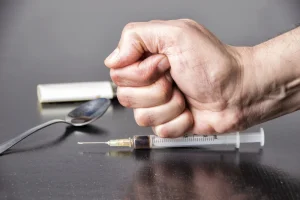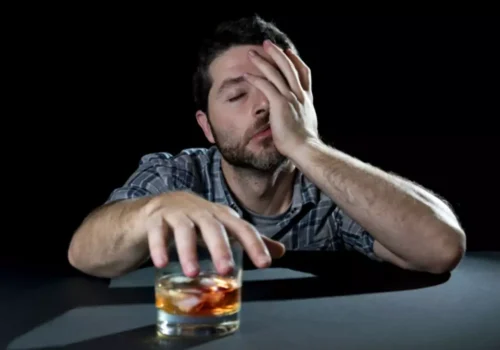
There are two types of alcohol withdrawal, acute withdrawal and post-acute withdrawal, also known as ‘PAWS’. Acute withdrawal occurs in the first hours and days after you stop drinking, whereas PAWS can last for weeks or even months. alcohol brain fog Unstable vital signs increase the risk of complications and can be managed with medications. People who experience severe withdrawal symptoms or DTs may require hospitalization or intensive care unit (ICU) treatment during alcohol.
How Does Heavy Drinking Affect the Brain Long-Term?
Seniors should commit to their sobriety, stay positive, and look for support from loved ones. With the right tools and support, seniors can gain mental clarity, improve their quality of life, and enjoy their golden years to the fullest. It is possible that even subtle cognitive deficits could affect how alcoholics seek and participate in treatment and resume normal lives in the weeks and months after they stop drinking. Three examples of different types of deficits and their impact on elements of treatment are presented below.
Save 10% on addiction treatment

You build up a tolerance over time and do not feel as good as you once did with the same amount of alcohol. High alcohol consumption can damage your brain and the rest of your body. Studies into the effects of alcohol on the brain have shown that the brain is able to repair itself remarkably quickly after stopping drinking.
Don’t Let Financial Worries Stop You from Getting Treatment
Alcoholics practice cognitive rehearsal tasks to improve their cognitive functioning. On the other hand, some researchers have reported the relationship between cognitive deficits and treatment success to be modest at best or even inverse. They note that adding indicators of patients’ cognitive status to statistical analyses does not increase the accuracy of the treatment outcome predictions that result from using only basic sociodemographic variables. You may have tried to quit drinking alcohol and discovered that the symptoms you experienced were more severe than you anticipated.
Once the brain adjusts to alcohol use, it requires alcohol in order to function properly. Someone who cuts themselves off from drinks may experience extreme pain or medical problems like delirium tremens. A person may think they have damaged their brain or need alcohol in order to think, which can trigger a relapse. 47% of COVID-19 patients who have prolonged symptoms experience brain fog. For those who don’t require inpatient treatment, it can still make a big difference to seek support. This can look like finding alcohol support groups and looking for sober communities, either online or in your area.
How quitting alcohol causes brain fog:

Alcohol detoxification, or simply detox, is a process of navigating through alcohol withdrawal. These resources can all be great tools for treating alcohol addiction and brain fog. Once the fog clears, you should see your situation in a new light, and this is the moment when you will discover just how good it feels to be sober. While you will have been working through the issues that affect your addiction during the brain fog, you will get a renewed chance to focus even more on getting better.
Consider starting a healthy withdrawal program
Through abstinence, however, studies have shown that a regeneration of brain function, metabolism and brain volume (including white matter) is possible. Known as the “sober curious,” a growing number of people are selectively quitting alcohol. It all began in 2013 with a challenge called “Dry January,” during which participants took a month-long break from drinking following boozy holiday gatherings and rowdy New Year’s Eve parties. But what exactly happens to the brain when a person who regularly drinks goes cold turkey — even for a short while? For one, most research related to brain changes after alcohol use has studied the brains of heavy drinkers or people who misuse alcohol and then become sober.
- Most symptoms will typically peak five days after they begin and will begin to decrease about five to seven days after they begin.
- Your detox should be medically supervised in order to help minimize severe symptoms.
Younger alcoholics (those under age 40) show substantial recovery of all cognitive functions; only the most demanding tests detect residual deficits. Although their performance on cognitive tests may continue to improve, deficits can be observed on visuoperceptual and problem-solving tasks for much longer periods of time, even as long as many months or years. In certain studies examining deficits in short-term memory, visuospatial functioning, and attention among older alcoholics, problems have been identified even after 5 years (Brandt et al. 1983). When it comes to alcohol’s effects on the brain, the consequences are profound.
- Someone may have brain fog from a previous ailment, or they may experience brain fog for the first time.
- Use of this site constitutes acceptance of Sober Recovery’s “Terms of Use”, “Privacy Policy”, “Cookie Policy”, and “Health Disclaimer”.
- One study found that clearing brain fog after drinking is possible with long-term sobriety, with a considerable reduction in symptoms of brain fog starting 6 months after the last drink.
- Alcoholics with more years of heavy or problem drinking are not more likely to have more lasting impairment than are those with fewer years.
- The friendships and connections formed within support groups can be a powerful source of motivation and strength.
Factors Influencing Brain Fog Recovery Time
Brain fog, for example, is sometimes viewed as one of these lesser-known effects. But someone can make a full recovery and start withdrawing from alcohol. The key is to practice a few different remedies and get help from licensed alcohol treatment counselors.
However, it’s important to note that cognitive impairments resulting from long-term alcohol use can persist even after you stop drinking. Brain fog, or mental fog, is often described as feeling mentally drained and unable to concentrate. Signs of brain fog include reduced cognitive functioning or difficulty with paying attention, keeping focus, multitasking, and memory recall. Most people who have dealt with alcohol addiction have some idea of what brain fog feels like because it is very similar to how you might feel after a round of heavy drinking.
